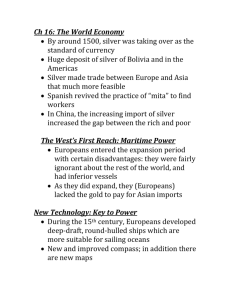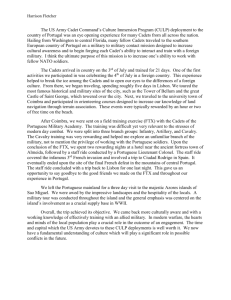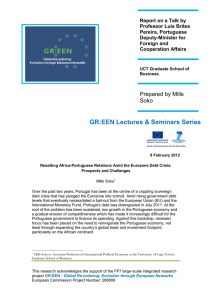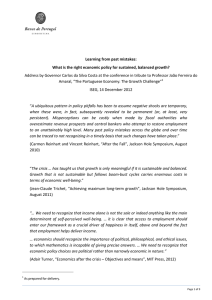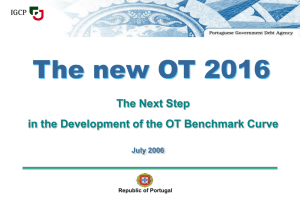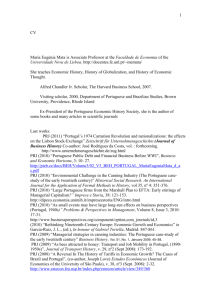DOC - Europa
advertisement
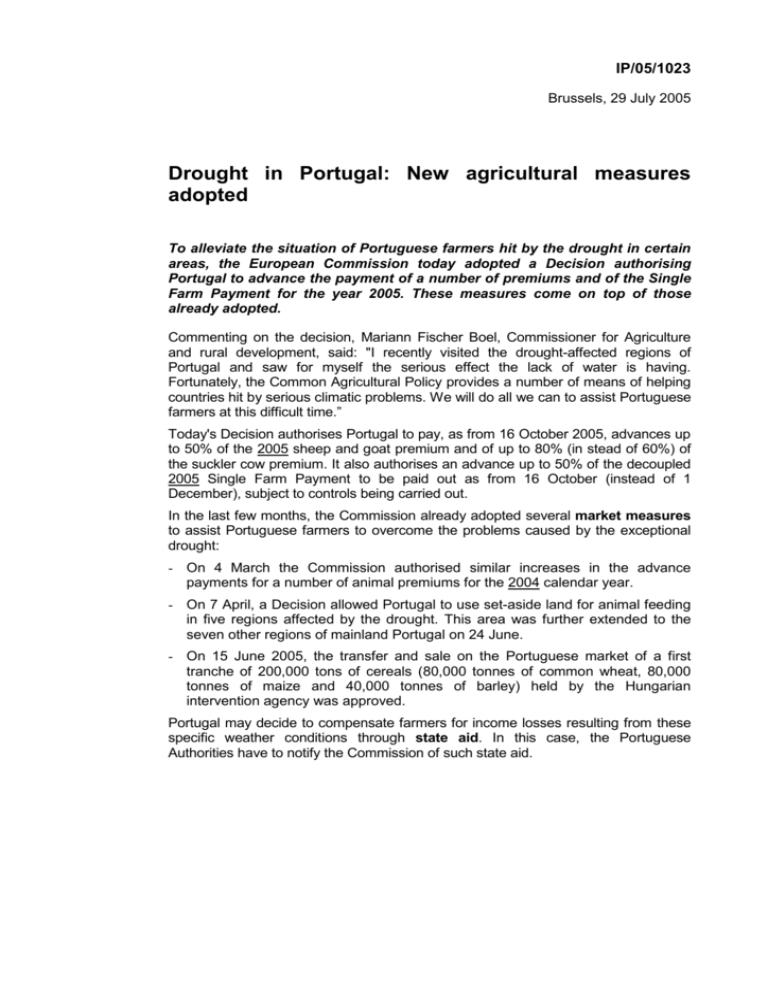
IP/05/1023 Brussels, 29 July 2005 Drought in Portugal: New agricultural measures adopted To alleviate the situation of Portuguese farmers hit by the drought in certain areas, the European Commission today adopted a Decision authorising Portugal to advance the payment of a number of premiums and of the Single Farm Payment for the year 2005. These measures come on top of those already adopted. Commenting on the decision, Mariann Fischer Boel, Commissioner for Agriculture and rural development, said: "I recently visited the drought-affected regions of Portugal and saw for myself the serious effect the lack of water is having. Fortunately, the Common Agricultural Policy provides a number of means of helping countries hit by serious climatic problems. We will do all we can to assist Portuguese farmers at this difficult time.” Today's Decision authorises Portugal to pay, as from 16 October 2005, advances up to 50% of the 2005 sheep and goat premium and of up to 80% (in stead of 60%) of the suckler cow premium. It also authorises an advance up to 50% of the decoupled 2005 Single Farm Payment to be paid out as from 16 October (instead of 1 December), subject to controls being carried out. In the last few months, the Commission already adopted several market measures to assist Portuguese farmers to overcome the problems caused by the exceptional drought: - On 4 March the Commission authorised similar increases in the advance payments for a number of animal premiums for the 2004 calendar year. - On 7 April, a Decision allowed Portugal to use set-aside land for animal feeding in five regions affected by the drought. This area was further extended to the seven other regions of mainland Portugal on 24 June. - On 15 June 2005, the transfer and sale on the Portuguese market of a first tranche of 200,000 tons of cereals (80,000 tonnes of common wheat, 80,000 tonnes of maize and 40,000 tonnes of barley) held by the Hungarian intervention agency was approved. Portugal may decide to compensate farmers for income losses resulting from these specific weather conditions through state aid. In this case, the Portuguese Authorities have to notify the Commission of such state aid. Up to now Portugal has notified the Commission two different measures: - Aid N 293/2005 establishing a credit line for supporting the realisation of hydraulic investments by stock breeders in order to guarantee/improve the conditions of watering of their livestock in regions affected by the drought. - Aid N 291/2005 establishing a credit line for supporting the acquisition of animal feed. The aim is to compensate extensive cattle, sheep and caprine breeding as well as bee-keepers of certain regions for the additional costs with animal feed due to the lack of pasture and forage. These measures are actually being analysed by my services. A decision on their compatibility with the Treaty will be taken as soon as possible. The Portuguese Authorities can also make use of the new “de minimis” Regulation. Aid up to € 3000 per farmer can be granted over a period of three years without being notified to the Commission, provided that among other conditions the amount does not exceed € 17,832,000 over a three-year period. Portugal has not made use of this possibility. In the context of the current rural development programme for mainland Portugal, the Commission accepted on 26 April that drought was recognized as force majeure, thus derogating to conditions normally applicable to certain agro-environmental measures. As an example, grazing or cutting forage for animal feeding which would not be permitted under normal circumstances on land under certain agroenvironmental contracts could be authorized. Rural development policy offers a long-term solution for supporting farmers in adopting more sustainable production systems through, amongst other measures, on-farm investments and agro-environmental aid, aiming at stocking water and making the most rational and efficient use of this natural resource. 2




